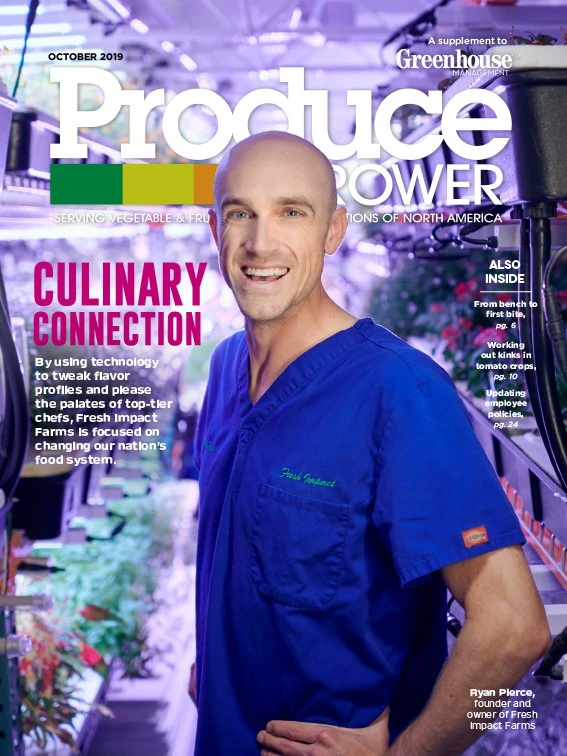

Tomatoes are the most widely grown fruiting greenhouse crop. The types of tomatoes produced vary from the beefsteak or slicer types to the smaller-fruited grape and cherry types. Regardless of which kind you are growing, they can all suffer from cluster kinking (Fig. 1), snapping, or in extreme circumstances, ripping (Fig. 2). When mild kinking occurs, fruits and clusters may develop into marketable products. However, when kinking is severe, or when the tissue snaps or rips and severs the vascular tissue that conducts water, nutrients and carbohydrates, fruits may not develop into the high quality that’s expected from greenhouse-grown tomatoes.
There are different factors that can cause this. First, some varieties have a weaker pedicle (flower and fruit stem) than other varieties. It can also be influenced by the greenhouse environment. When a crop is grown in a warm environment, it steers the plant toward a more vegetative state. This doesn’t mean the plant will stop flowering, but the vegetative and generative (reproductive) stages of fruiting vine crops elicit different growth habits. When a tomato is in a more vegetative state, the pedicle of the flower cluster is more upright. As a result, that vertical habit of the pedicle carries out through fruiting. Low light intensity can also result in more kinking or snapping as well. Tissue grown under low light is softer and weaker than under higher light and, under the weight of fruit, can bend or snap more easily.
There are a few ways to try and avoid this problem. First, if the disorder was the result of an environment that is favorable to causing it, try to change the growing environment. For instance, if you have supra-optimal air temperatures or low light, try to cool your greenhouse or increase lighting.

However, some factors can’t be controlled. If you are already using all cooling stages in the summer, it is going to be a challenge to drop temperatures. Similarly, if you are suffering from low light in the winter, but do not have supplemental lights you can use to provide more light to your crop, there is nothing you can do to prevent weak stems.
If you have modified the greenhouse environment and culture, but still find this disorder occurring, using a support for your fruiting clusters is the best way to minimize losses from cluster kinking or ripping. While this will require additional labor inputs, in addition to the costs of the clips and supports themselves, it is the last option you have. There are a few different styles you can use. One type of clip, the arch support, is placed on the pedicle when the flower cluster is blooming and, as the fruits form and the cluster bears more weight on the stem, an arch is formed and supported by the clip, supporting the fruits. Another type of support, the “J hook,” attaches directly to the vine twine or trellis and then the pedicle is placed in a hook. For both supports, as the cluster gets heavier, they will stop kinks from forming.
When kinking is severe, or worse, when the tissue snaps or rips, and severs the vascular tissue that conducts water, nutrients and carbohydrates, fruits may not develop into the high quality that’s expected from greenhouse-grown tomatoes.
Reducing losses from kinked clusters should be a goal for every tomato grower. As the low-light time of year is approaching, consider how you can modify the greenhouse environment or culture to avoid tomato cluster kinking. Alternatively, consider using supports to ensure all your cluster-type tomatoes will develop into healthy and attractive salable products.

Explore the October 2019 Issue
Check out more from this issue and find your next story to read.
Latest from Produce Grower
- PG CEA HERB Part 2: Analyzing basil nutrient disorders
- University of Evansville launches 'We Grow Aces!' to tackle food insecurity with anu, eko Solutions
- LettUs Grow, KG Systems partner on Advanced Aeroponics technology
- Find out what's in FMI's Power of Produce 2025 report
- The Growth Industry Episode 3: Across the Pond with Neville Stein
- The Growth Industry Episode 2: Emily Showalter on how Willoway Nurseries transformed its business
- 80 Acres Farms expands to Georgia, Texas and Colorado
- How BrightFarms quadrupled capacity in six months






